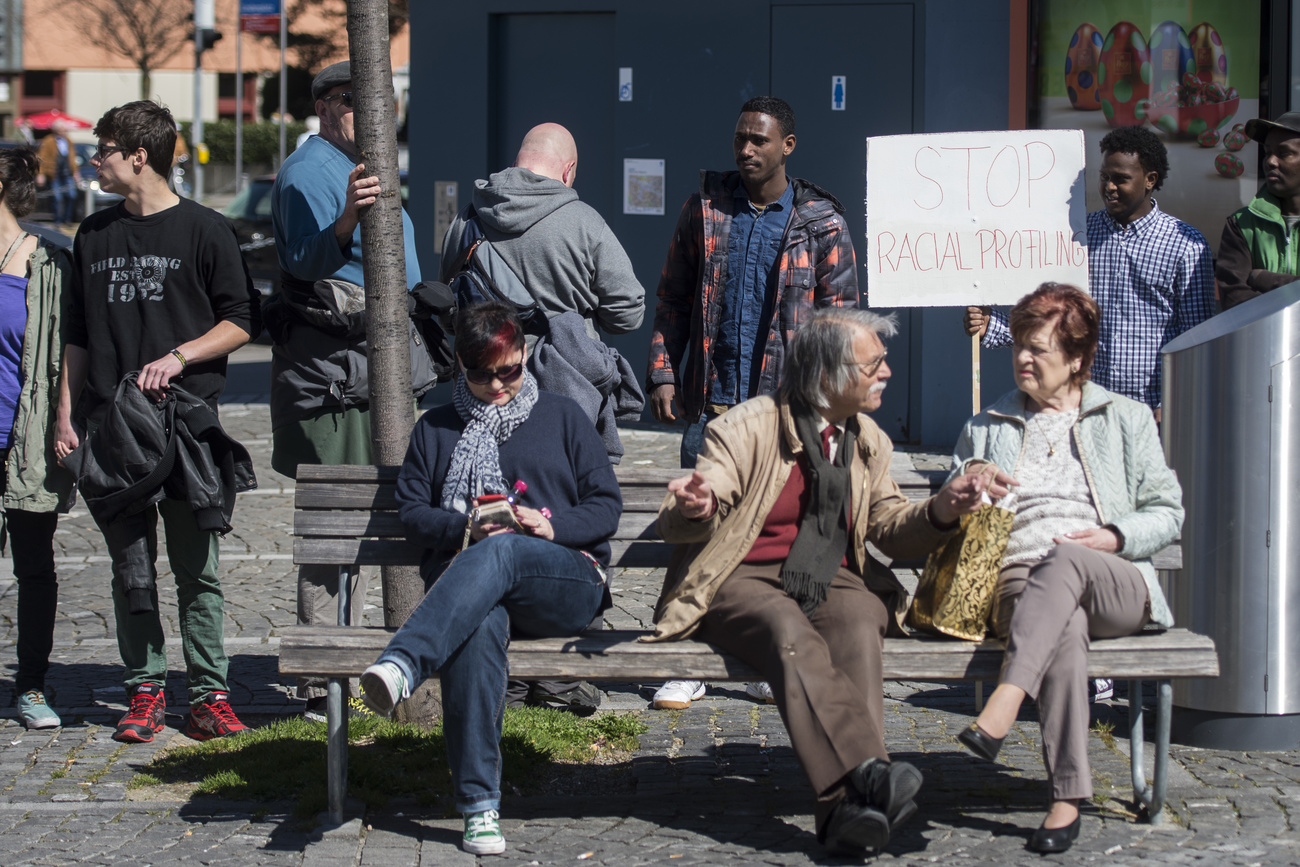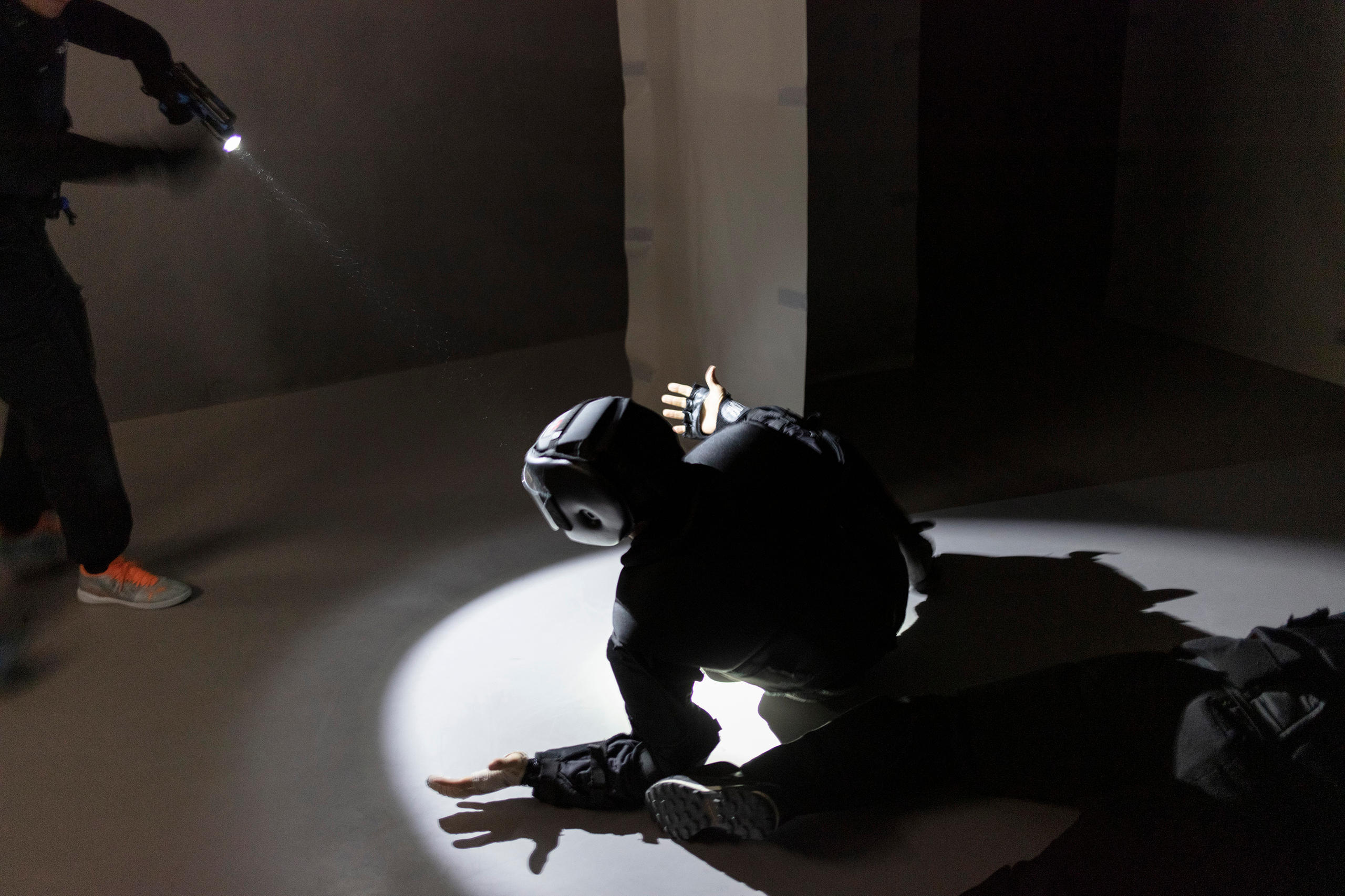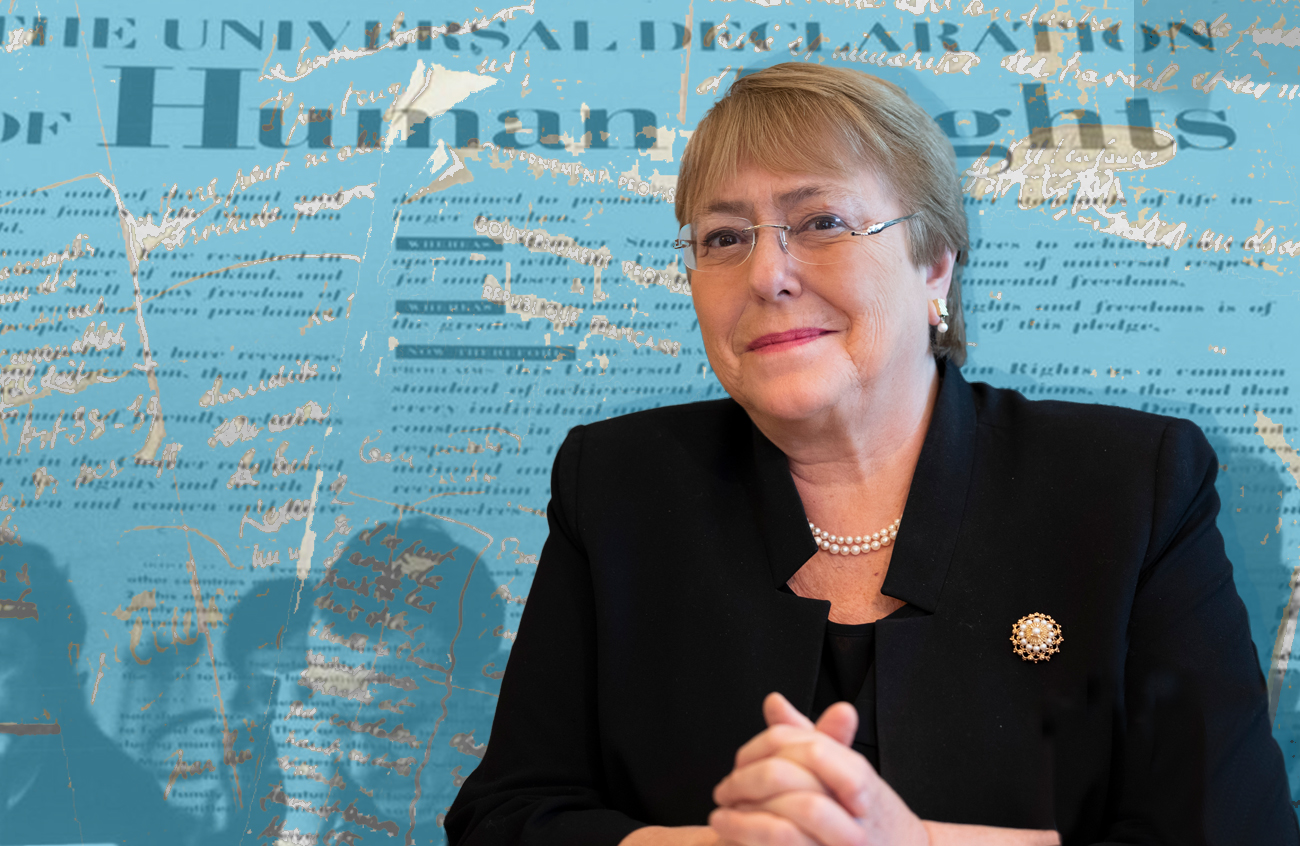Racial profiling judgement against Switzerland: ‘a hopeful moment’

The European Court of Human Rights has ruled against Switzerland in a case of discriminatory police checks and called for legal guidelines. A United Nations expert tells SWI swissinfo.ch how she encountered a “culture of denial” when she identified racial profiling by the Swiss police.
“It’s a hopeful moment in terms of the systemic racism and the ongoing culture of denial that we’ve observed,” says American lawyer Dominique Day, who is delighted with the judgement. Catherine Namakula, a South African lawyer, calls it a “landmark decision.”
Last week, the European Court of Human Rights in Strasbourg condemned Switzerland for racial profiling. It is the first time that the court has categorised a specific police check as discriminatory.
In 2022, the court declared the case an “impact case”. These are cases that raise new questions about the application of the European Convention on Human Rights and are therefore particularly important for the development of human rights.
What is ‘racial profiling’?

Racial profiling is when police conduct targeted checks on people solely because of their skin colour.
Dominique Day and Catherine Namakula are two of five members of the UN Working Group of Experts on People of African Descent. This UN working group visited Switzerland in 2022 at the invitation of the Swiss government.
The European Court of Human Rights case, which was pending at the time, was already a major topic during this research trip. Day recalls that in conversations with black people during the visit, the unanimous opinion was that the country would only tackle racial profiling as a problem if the Strasbourg court ruled against Switzerland.
Librarian fights back and wins
The case before the court has its roots in an incident nine years ago. A Swiss librarian with roots in Kenya was stopped by the police at the Zurich train station. He refused to show his ID because the two police officers singled him out in a crowd but gave no reason for doing so. The librarian was penalised for this. Feeling discriminated against, the librarian fought back as far as the European Court, and has now won.
The judges ruling in the case were unanimous: the police stop was discriminatory, and the Swiss courts should have reviewed it.
Until now, Swiss police officials have often defended themselves against accusations of racial profiling. Faced with criticism, they often argue that the case at issue is a one-off.
However, the Zurich city policeExternal link introduced a new rule back in 2017 following the librarian’s allegations. Since then, police officers have had to give a reason for conducting checks.
Only the UK records ethnicity during police checks
But Switzerland has no data on this issue. The United Kingdom is the only country in Europe to record ethnicity during police checks.
From April 2021 to March 2022, 27.2 of every 1,000 black people were stopped by the police in England and Wales, compared to 5.6 of every 1,000 white people stopped in the same period. The difference was even greater the year before.
In its report following its visit in 2022, the UN working group recognised the Swiss government’s willingness to tackle racial discrimination and injustice. However, it also listed dozens of areas for action and was unsparing in its criticism. Among other things, it named racial profiling as commonplace in police work. “Racial profiling and police checks on young black people humiliate, criminalise and stigmatise them,” it said.
Ignorance in the Swiss police force
Day remembers harsh reactions to these unambiguous words in the working group report. Swiss officials questioned the methodology used by the UN experts and tried to obtain the names of anonymised interviewees.
For Day, this confirmed the image of those responsible that she had formed during her research trip. The US lawyer reports encountering ignorance and prejudice. “One police chief, for example, was of the opinion that ‘hip-hop culture’ was inherently criminal,” she says. All interviewees with police responsibilities were unaware of the UN Human Rights High Commissioner’s report on racism in police workExternal link published in 2021, Day says.
Time and again, those in positions of responsibility explained Swiss federalism as the reason for “barriers to guaranteeing human rights,” she says.
Federalism as an excuse for doing nothing?
According to Day, however, this is primarily an excuse for doing nothing. “There are inter-cantonal, centralised and national initiatives for precisely those institutions considered ‘untouchable’ because of federalism,” she says.
Day is referring to the Swiss police forces which, despite federalism, work together with “centralised institutes to establish common standards” in areas such as training. The lawyer now recognises a window for change and commitment in Switzerland following the ruling.
The judges in Strasbourg identified Swiss politicians in particular as responsible: with new legal guidelines for police officers, legislators could prevent discrimination during police checks, they said.

More
To keep trust, police taught to ‘keep cool’
Switzerland mulls an appeal
However, new measures or laws are not yet on the agenda in Switzerland. The judgement will only become legally binding after three months. In response to detailed questions, the Swiss Federal Office of Justice merely stated in general terms that it was analysing the ruling. It is also currently examining “whether Switzerland should refer the case to the Grand Chamber of the ECHR.”
Day says there are many potential measures to prevent racial profiling, such as “civilian supervision of the police, bodycams for police officers with publicly available recordings, and the collection and use of data broken down by ethnicity.”
The UN working group made these recommendations for action to Switzerland back in 2022. “But to get started, we need political will and individual commitment,” Day says. Her colleague Namakula mentions, among other things, the issuing of receipts for every police check as a measure.
What could receipts for police checks achieve?
The librarian at Zurich’s main railway station could only go to court because he refused to show his ID – and the public prosecutor’s office wanted to punish him for that. If people co-operate with police checks according to the law, this would not be possible.
If they received a receipt, it would be different. Those affected who feel discriminated against could always take legal action.

In the UK, such a receipt is issued at every police stop. According to an analysis by the British Home Office, the differences in the rate of police stop and searchesExternal link by ethnicity fell between 2011 and 2021. However, “these disparitiesExternal link” have not yet been eliminated with the declines. The UK has already recognised the problem.
If it does not appeal the judgement, Switzerland will probably not be the only country faced with the need to take action on racial profiling in police work.
As a ruling in an “impact case,” it is considered relevant for the general development of human rights. The Strasbourg court wanted to use it to clarify fundamental questions. Accordingly, all states that have signed the European Convention on Human Rights should now be guided by this judgement.
Edited by Mark Livingston. Adapted from German by Catherine Hickley/gw

More
Michelle Bachelet: The Universal Declaration is ‘good enough’

In compliance with the JTI standards
More: SWI swissinfo.ch certified by the Journalism Trust Initiative









You can find an overview of ongoing debates with our journalists here . Please join us!
If you want to start a conversation about a topic raised in this article or want to report factual errors, email us at english@swissinfo.ch.